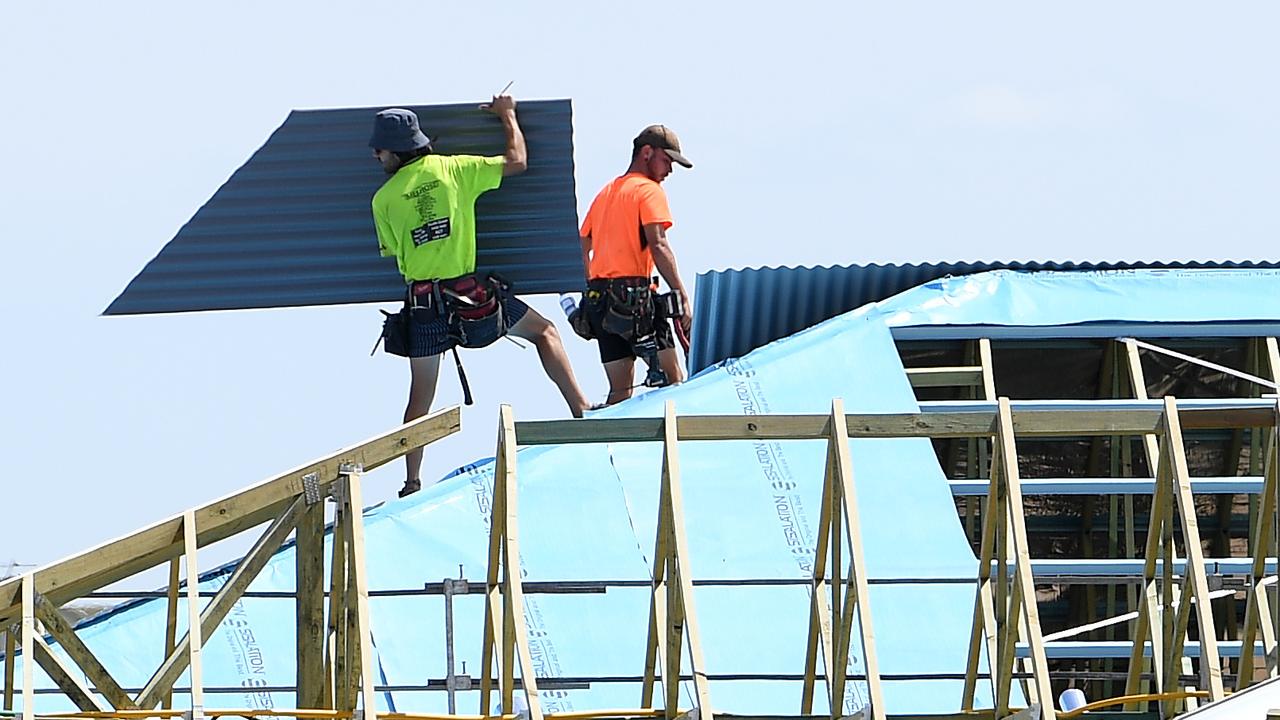Grasping the Nettel: cash, but no time to enjoy it
FORGET the Fockers - meet the Nettels.
FORGET the Fockers - meet the Nettels. Don't know the Nettels? They're the newest, the edgiest, the hippest life form to emerge from the nation's primal demographic soup.
Not Enough Time To Enjoy Life, or NETTEL, refers to the rising pool of households headed by two high-income-earning, full-time-working parents with dependent children up to the age of 24.
I suspect that a Nettel is formed within a few years of whenever a DINK (Double Income No Kids) decides to jump on board the baby bandwagon.
In 2006, there were seven million households in Australia, most of which comprised couples (27 per cent), singles (24 per cent), one-parent families (12 per cent) and groups (4 per cent).
But the largest single social grouping is the traditional nuclear family (32 per cent), otherwise known as mum-dad-and-the-kids.
Until the 1970s, the traditional nuclear family was supported by a single male breadwinner.
Today it's a different story. Such is the cost of living, or the cost of the expected standard of living, that the traditional nuclear family now requires two incomes.
But in many traditional nuclear families two full-time incomes are now required to cover the cost of the mortgage, the car payments, the ballet lessons, the Gold Coast holiday, new clothes ("I can't possibly be seen in last season's suit"), the occasional meal out, the orthodontist bill, the pay-TV subscription, multiple mobile phone bills, internet costs, presents for the kids -- and don't even get me started on the need for alcohol to sustain (or is that to dull the pain of) this lifestyle.
Are you having fun yet?
Depending on the number and ages of the children, this is where the Nettel syndrome kicks in. Here are two parents working full-time earning lots of money but struggling to balance the commitments that come with a demanding job and an even more demanding family life. In many families it's a case of got enough money but haven't got enough time to enjoy life. These stressed-out Nettel parents are forever scheduling, scheming and diarising about how to execute the next day's events.
And, by some bizarre twist of logic, many of these parents seem to revel in the scheduling frenzy. In a materialistic go-getter world, a couple's ability to juggle and to control life's commercial and familial demands (when other lesser beings cannot) merely confirms their superior "alpha" status. In other words, "we're doing well, managing it all, making (and spending) money, and you're not".
Often other adults are drawn into the alpha couple's intoxicating money-work-family vortex. At the upper end of the spectrum there's always the nanny option, which theoretically leads to the highly elusive but much coveted POTTEL position: Plenty Of Time To Enjoy Life.
But for the less affluent middle class there's often an orbiting grandmother ever ready, willing and able to pick up the pieces. Kindly neighbours are also good to occasionally mind kids in an emergency, but then so too is a network of stay-at-home mothers.
Mind you, this can cause a mighty diplomatic rift at school-gate gatherings if the emergency-only rule is abused: "How dare she ask me to babysit her kid after school because she works; I shouldn't have to pick up the pieces because of her lifestyle choices!" Or, "I agreed to pick her kid up after school, but then she didn't call to collect until after seven o'clock."
So who are these Nettels and where do they live? I have sifted the 2006 census results to find the postcodes that have the highest proportion of traditional nuclear families with dependent children where both parents work full-time and who jointly earn more than a threshold of $110,000 per year in 2009 values. In practical terms the average (as opposed to the threshold) income of these households would approach $150,000.
There were 129,000 Nettel families in Australia in 2006 - up 39 per cent from 93,000 in 2001. Nettels are expanding at a rate of 7000 per year. But high-income-earning, full-time-working parents and their families are not evenly distributed across Australia. Nettels might comprise just 5 per cent of all traditional nuclear families but in some capital city suburbs this proportion is three times the national average.
Perhaps it's not surprising but Australia's Nettel hotspot is in the national capital. That's right, hard-working bureaucrats are behind the fact that 15 per cent of mum-dad-and-the-kid households in Curtin (postcode 2605) might be earning good money, but they are also no doubt struggling to manage the demands of a full-on job and dependent children.
And it's not as if this is a one-off for Canberra, since the nation's No2 postcode for Nettel syndrome is Forrest (postcode 2603) where just under 15 per cent of traditional nuclear families have two high-income-earning, full-time-working parents.
Canberra politicians made famous the concept of "working families". Well, it would seem that the nation's hardest-working and possibly most stressed-out families have crystallised in the suburbs that flank the prime ministerial residence. Perhaps "overworked families" is a more accurate term than "working families".
Mind you, Canberrans are in a unique position when it comes to mixing work with family: there is a large transitory component to the public service, which means there are fewer nearby orbiting grandmothers to provide support. And the workplace is so damned convenient to home: both Curtin and Forrest are less than 10 minutes drive from Parliament House.
I wonder whether Canberra parents watching kids' sport on a weekend do so with a BlackBerry in hand so they can do something useful during the boring bits?
Nettel strongholds in each state connect suburbs and towns with a remarkably similar demographic structure. These include Sydney's Paddington, where 11.1 per cent of families are Nettels; Melbourne's Albert Park (11 per cent); Brisbane's Balmoral (10 per cent); Adelaide's Burnside (8.1 per cent) and Western Australia's Karratha (10.8 per cent).
The conclusion is that Nettel households don't like being too far from work. In fact, all Nettel hotspots offer access to a major work destination within 15 minutes of home. Indeed, I suspect that given half a chance many Nettels would live at work.
Bernard Salt talks about work in The Nest on SBS, Saturday, at 7.30pm
bsalt@kpmg.com.au
twitter.com/bernardsalt


